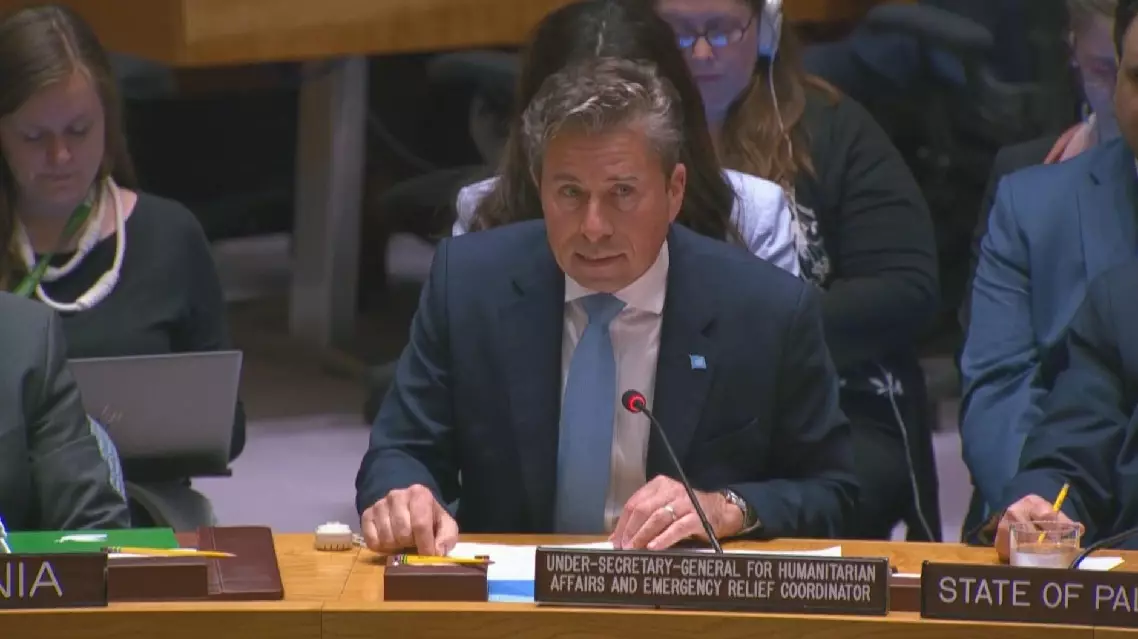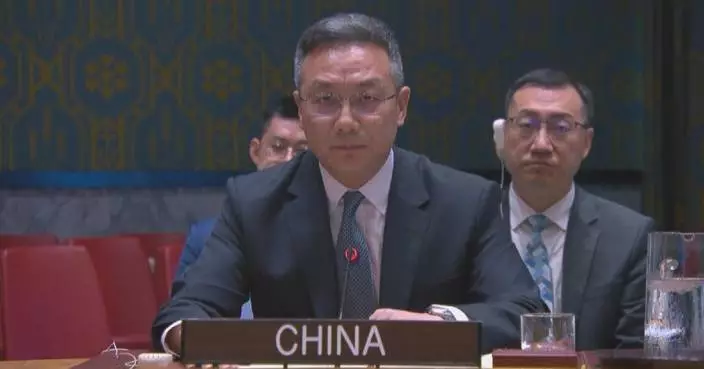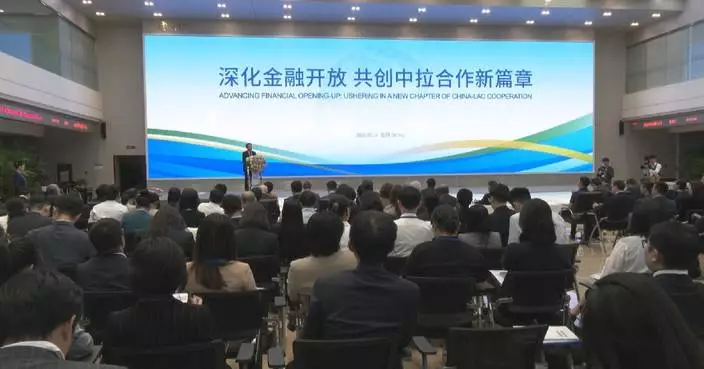The tourism and cultural industries of Chengdu in southwest China's Sichuan Province are benefiting from the so-called "panda economy", as demand for panda-themed products and visits to local giant panda reserves has been growing over recent years.
Throughout the streets and alleys of Chengdu, a city known as the home of the giant panda, elements depicting the beloved bear have been seamlessly integrated into various aspects of daily life, ranging from urban landscapes to commercial products.
Data shows that more than 12 million tourists visited the Chengdu Research Base of Giant Panda Breeding in 2024, while sales of panda-related cultural and creative products exceeded 210 million yuan (over 28 million U.S. dollars) during the year.
A range of items adorned with the unmistakable image of the giant panda are also enticing many visitors who are keen to snap up a memorable souvenir.
"I never thought that the image of pandas could be incorporated into all kinds of items. Here, the most distinctive feature is this stamp. Additionally, there is a stamp rally activity featuring various panda-shaped stamps. There are also small earrings and bookmarks. All of them are panda-themed," said a tourist.
The flourishing cultural and creative industry in Chengdu has also attracted talents and entrepreneurs keen to tap into the demand and there are already more than 10,000 enterprises across the city who are developing panda-themed products, according to data from the Sichuan Giant Panda National Park Cultural Innovation Alliance.
Among them is the Sichuan Hangwan Cultural Communication company, which specializes in life-like stuffed panda toys. These come in different shapes and sizes to accurately depict various ages, ranging from small newborn cubs up to fully-grown adult pandas.
In addition, the Chengdu-based brand GogoPanda has sought to spread the popularity by successfully holding over 300 events in more than 60 major cities around the world with its giant panda IP, attracting a total of over 10 million participants in these various global locations.
"We hope to create a truly giant panda (IP) that has rich culture, stories, engaging content and encourages interaction," explained Chen Guangyu, the founder of GogoPanda.

Power of "panda economy" drums up consumption in Chengdu
The United Nations Security Council has called on Israel to lift its blockade on Gaza, where food supplies are dwindling and the humanitarian situation continues to deteriorate.
Addressing an emergency meeting of the UN Security Council on Gaza's worsening humanitarian crisis on Tuesday, Tom Fletcher, the UN under-secretary-general for humanitarian affairs, said the humanitarian situation in Gaza is deteriorating rapidly amid an Israeli blockade that has prevented the entry of food, medicine, water and shelter materials for more than 10 weeks.
"We have life-saving supplies ready, now, at the borders. We can save hundreds of thousands of survivors. We have rigorous mechanisms to ensure our aid gets to civilians, and not to Hamas. But Israel denies us access, placing the objective of depopulating Gaza before the lives of civilians," he told the security council.
According to Fletcher, some 70 percent of Gaza's territory is either under displacement orders or within Israeli-militarized zones, leaving hundreds of thousands of civilians trapped in shrinking areas without basic necessities.
Every single one of the 2.1 million Palestinians in the Gaza Strip face the risk of famine. One in five face starvation, Fletcher said, quoting a report from the United Nations Food and Agriculture Organization (FAO).
Israel blocked the entry of goods and supplies into Gaza on March 2, following the end of the first phase of a January ceasefire deal with Hamas. It resumed attacks on Gaza on March 18, with at least 2,720 Palestinians killed since then.
Fletcher described an Israeli plan for aid distribution in the Gaza Strip as a "a fig leaf for further violence and the displacement" of Palestinians in the enclave.
"The Israeli-designed distribution modality is not the answer. It practically excludes many, including people with disabilities, women, children, the elderly, the wounded. It forces further displacement. It exposes thousands of people to harm. It sets an unacceptable precedent for aid delivery, not just in the OPT (the Occupied Palestinian Territory), but around the world. It restricts aid to only one part of Gaza while leaving other dire needs unmet. It makes aid conditional on political and military aims. It makes starvation a bargaining chip," he said.

UN Security Council urges Israel to lift Gaza aid blockade amid famine warnings



















































